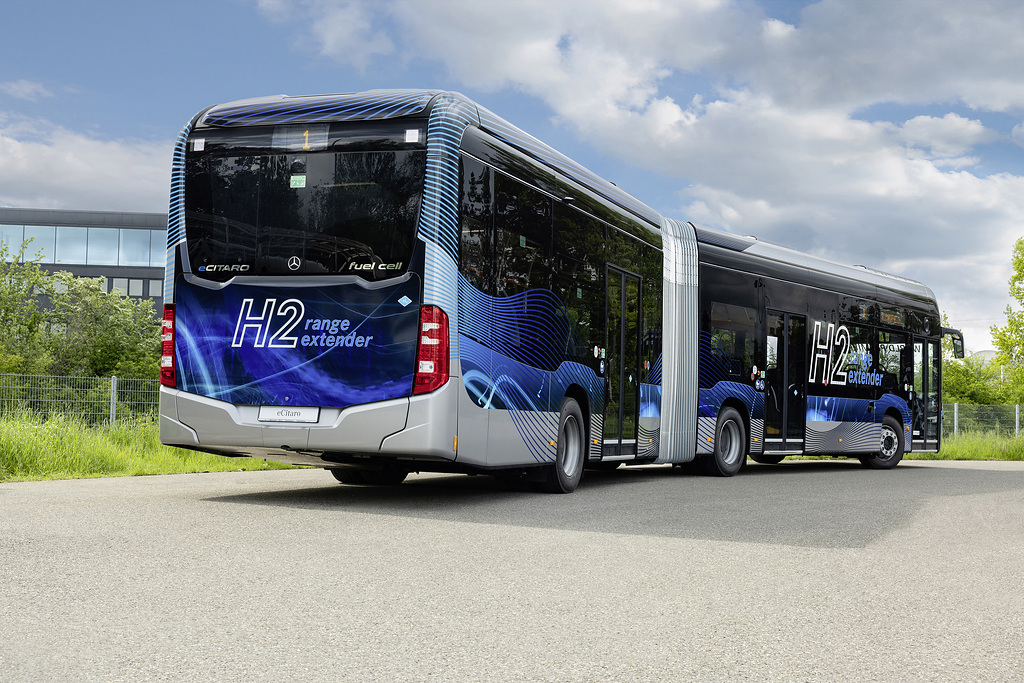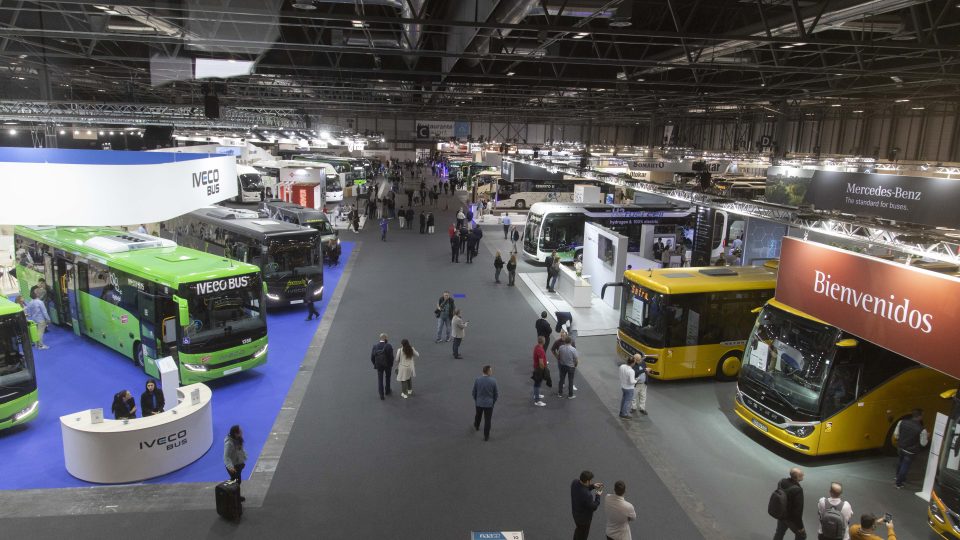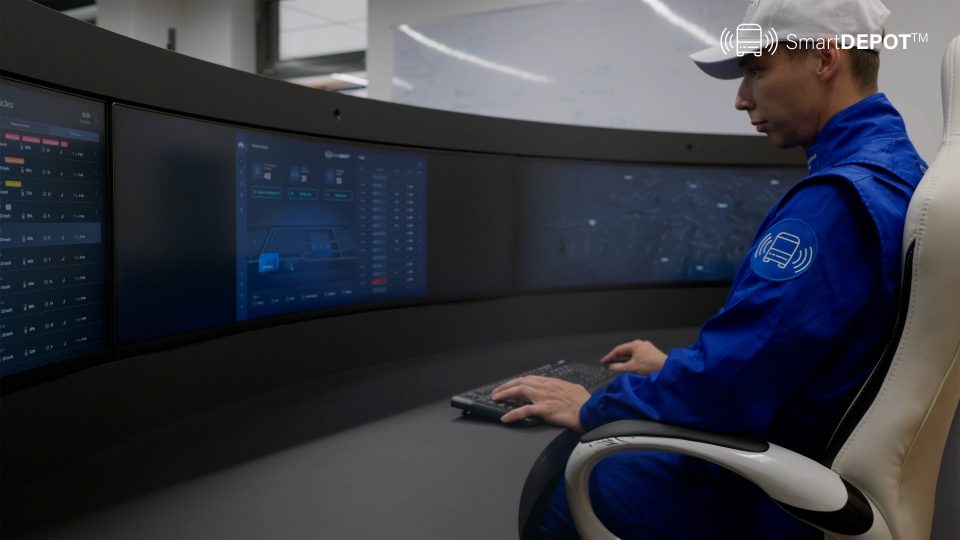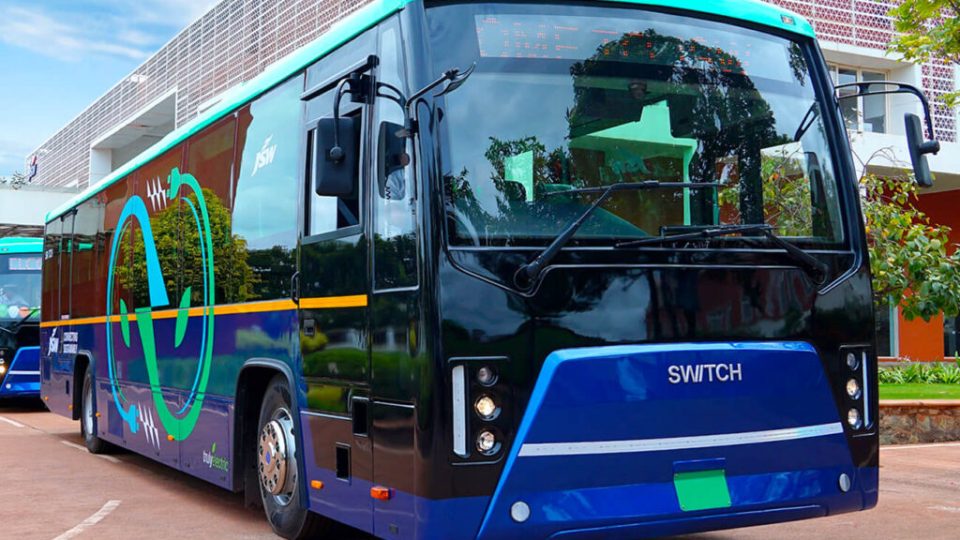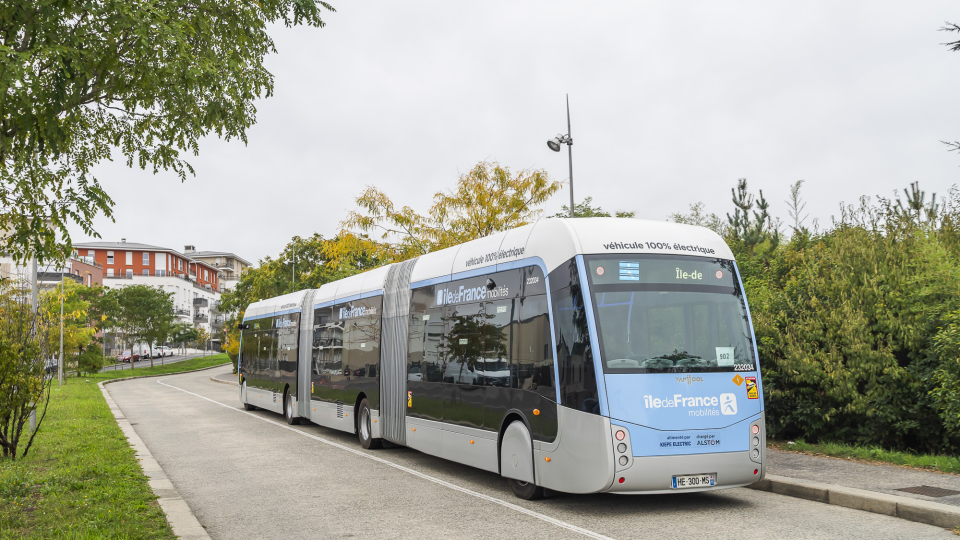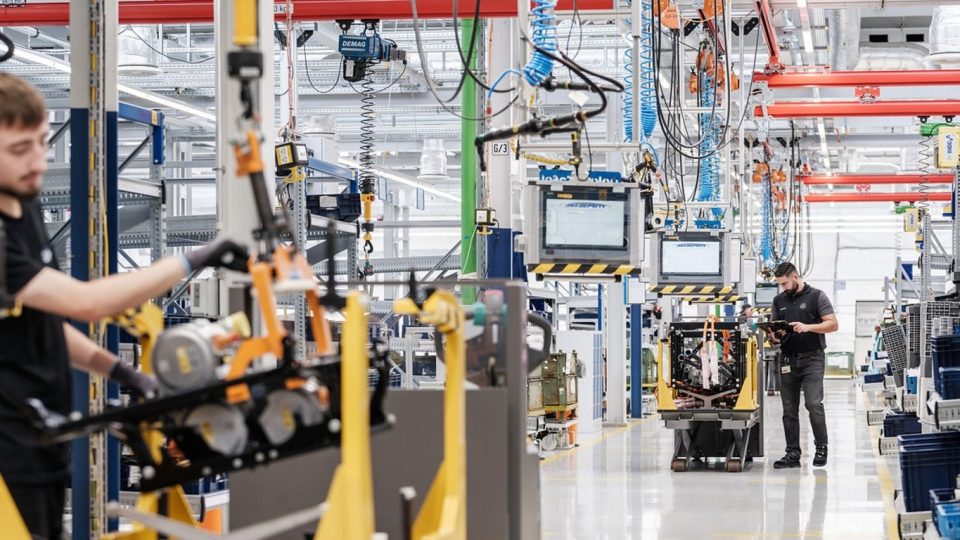Mercedes eCitaro fuel cell will ‘see the light’ at UITP Summit 2023
Daimler Buses will unveil the Mercedes eCitaro fuel cell at UITP Global Public Transport Summit in early June. At the group’s stand, visitors will have the opportunity to see the first series-production eCitaro electric bus with a fuel cell as a range extender. First order for the vehicles dates back to October 2022. Daimler Buses […]
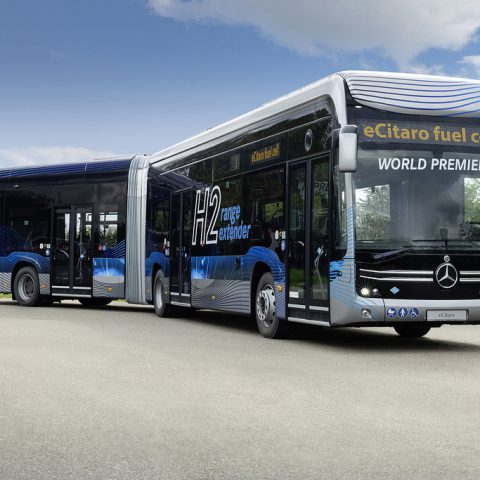
Daimler Buses will unveil the Mercedes eCitaro fuel cell at UITP Global Public Transport Summit in early June. At the group’s stand, visitors will have the opportunity to see the first series-production eCitaro electric bus with a fuel cell as a range extender. First order for the vehicles dates back to October 2022. Daimler Buses turned to Toyota as fuel cell module provider.
The Mercedes eCitaro in fuel cell bus version offers a stated range of approximately 350 kilometers without the need for recharging. This goes together a passenger capacity, on the articulated version, of up to 128 passengers. The difference between the eCitaro fuel cell project and most of the fuel cell buses on the market stay in the battery capacity: while it’s common to feature a small LTO battery (below 50 kWh) accompanying the fuel cell module, the eCitaro is equipped with a battery capacity similar to its battery-electric counterpart (up to 392 kWh for the 18-meter).
Daimler Buses at UITP Summit with eCitaro fuel cell
The eCitaro fuel cell utilizes a battery-electric drive system with high-performance batteries NMC3 (newly launched), while the fuel cell acts as a hydrogen generator to extend the range.
Before its series production launch, the eCitaro underwent rigorous endurance and functional tests, with a focus on the fuel cell and hydrogen system. The hydrogen tanks were subjected to fire, impact, and temperature resistance tests, meeting the UN ECE R 134 standard. Vibration and sled tests were performed on all components and the roof fastening system to simulate impacts, Daimler Buses strenghten. The thermal management system underwent extensive laboratory and practical tests in extreme temperature conditions, proving its reliability.
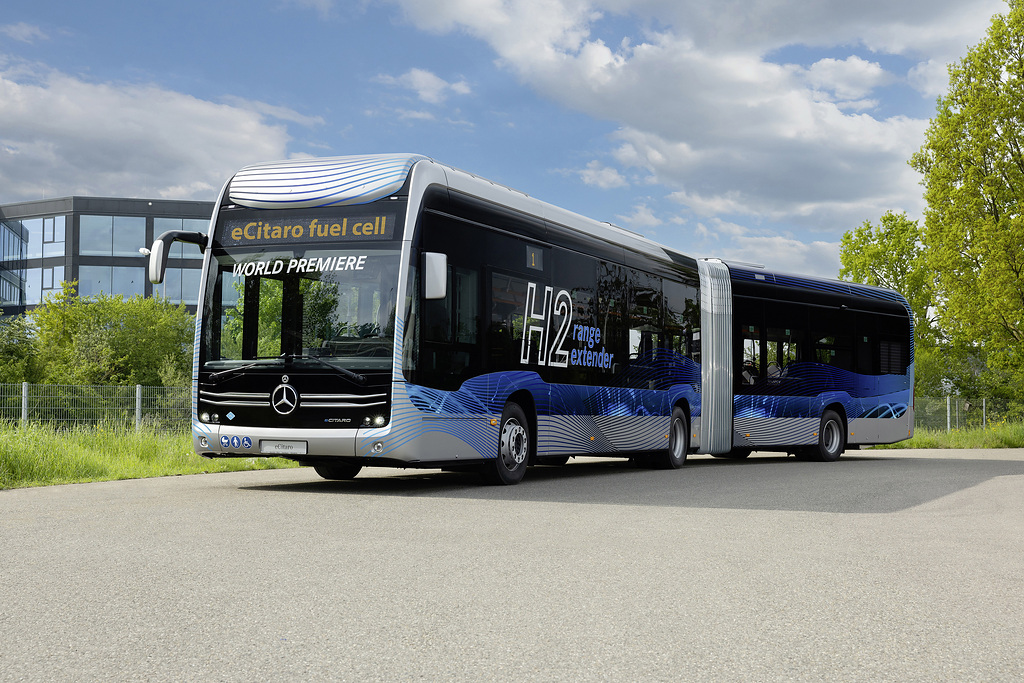
Big battery on the eCitaro fuel cell
“In contrast to a fully fledged hydrogen vehicle with a small buffer battery, the eCitaro fuel cell is also significantly better at completely and usefully storing the energy recovered during braking by recuperation in the large batteries. Last but not least, the vast battery capacity of at maximum 392 kWh in the articulated bus also enables high levels of drive output to be used over longer distances – for example on inclines in mountainous terrain – without the fuel cell having to operate in the top, inefficient power range”, Daimler Buses states.
In addition to the eCitaro fuel cell, Daimler Buses will showcase its service portfolio for electric bus operations at UITP Summit 2023. Daimler Buses underlines that it is one of the first vehicle manufacturers in Europe to offer the TiGR virtual data interface, an interface for remote bus monitoring in accordance with the universal, international standard defined by ITxPT. This enables transport operators with mixed fleets to use a homogeneous database for the entire fleet.
Beside this, the Omniplus On portal offers numerous functions from monitoring energy consumption to real-time remote diagnosis with the Omniplus On Uptime pro service. As a result of the new Omniplus eProcurement interfaces, customers’ own ERP systems can be connected to the Omniplus eShop, which makes the procurement of spare parts much easier. Training courses and eService contracts supplement Omniplus’ extensive range.
